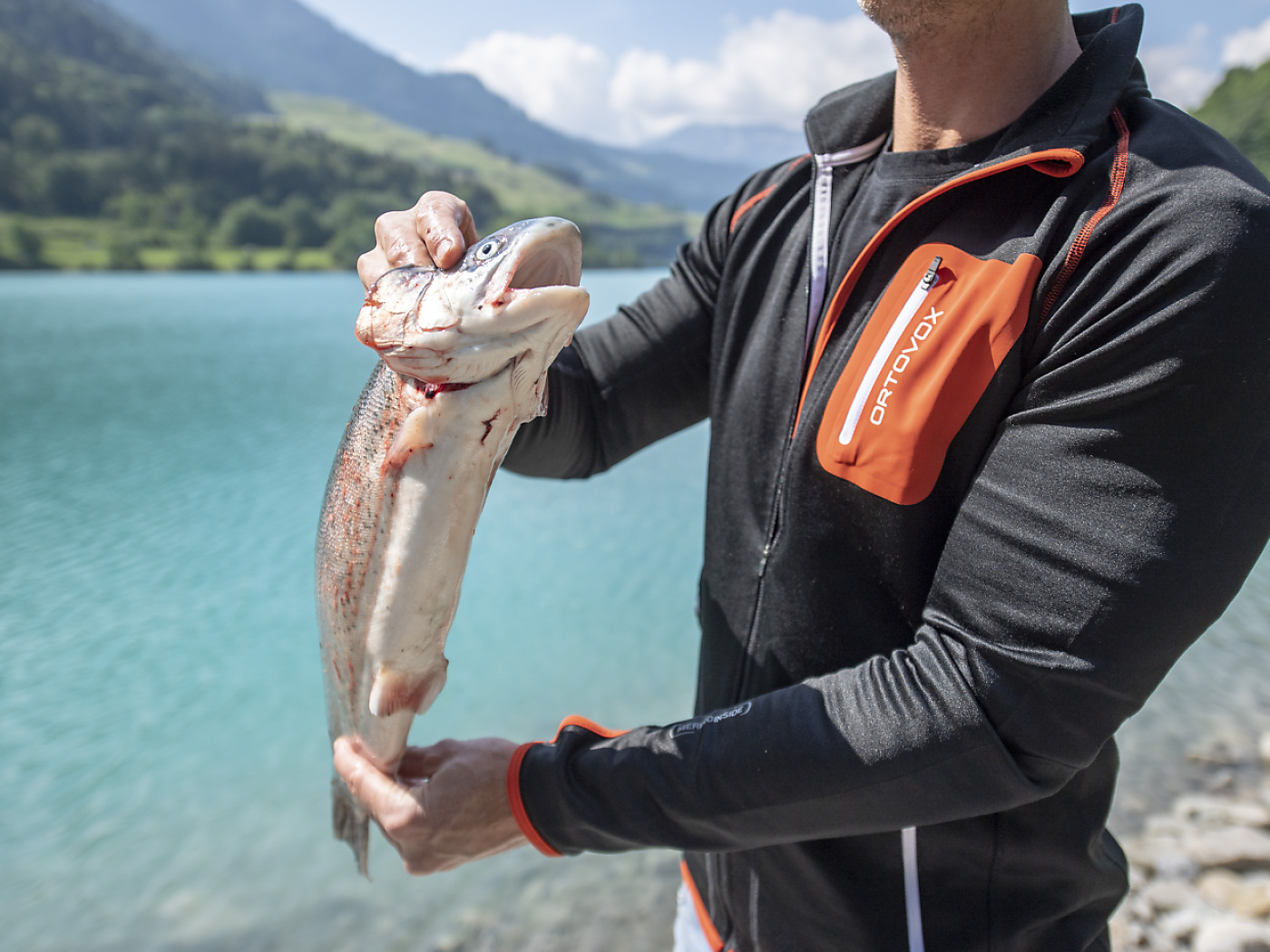
Fish and aquatic plants are under ‘severe pressure’ in Swiss rivers and lakes

Fish, aquatic plants and small animals in Swiss rivers, lakes and streams remain under 'severe pressure', according to the Federal Office for the Environment.
+Get the most important news from Switzerland in your inbox
Their condition has stabilised at a low level, the office said on Monday.
Experts from the Federal Office for the Environment (FOEN) periodically analyse the situation of fish, small organisms such as insect larvae, small crustaceans and aquatic plants in Switzerland.
According to their fourth measurement campaign in 2023, life in streams and rivers remains under severe pressure. Fish stocks and aquatic plants in particular are suffering due to human activity.

More
Fish species are disappearing as Swiss lakes warm up
Animal and plant communities are particularly affected in areas where humans have impaired water bodies with constructions as well as pollutants and nutrients from settlements, agriculture, trade and industry, the office said. Waste, foam and odours were observed at many measuring points.
The office warns that much still needs to be done to improve the condition of water bodies and their inhabitants. Re-naturalisation measures and steps to improve water quality have improved certain watercourses in the past. Positive interventions include more effective wastewater treatment, near-natural riverbank design, fish-friendly hydropower plants and the avoidance of pesticides that pollute watercourses, the office says.

More
Swiss trout and pike found with excessive PFAS levels
It points out that the Water Protection Act requires and encourages the implementation of such measures. If they are implemented consistently, the condition of aquatic animals and plants will improve and water bodies will be able to fulfil their essential functions for humans and nature, the office says.
Translated from French with DeepL/sb
We select the most relevant news for an international audience and use automatic translation tools to translate them into English. A journalist then reviews the translation for clarity and accuracy before publication.
Providing you with automatically translated news gives us the time to write more in-depth articles. The news stories we select have been written and carefully fact-checked by an external editorial team from news agencies such as Bloomberg or Keystone.
If you have any questions about how we work, write to us at english@swissinfo.ch.

In compliance with the JTI standards
More: SWI swissinfo.ch certified by the Journalism Trust Initiative




























You can find an overview of ongoing debates with our journalists here . Please join us!
If you want to start a conversation about a topic raised in this article or want to report factual errors, email us at english@swissinfo.ch.